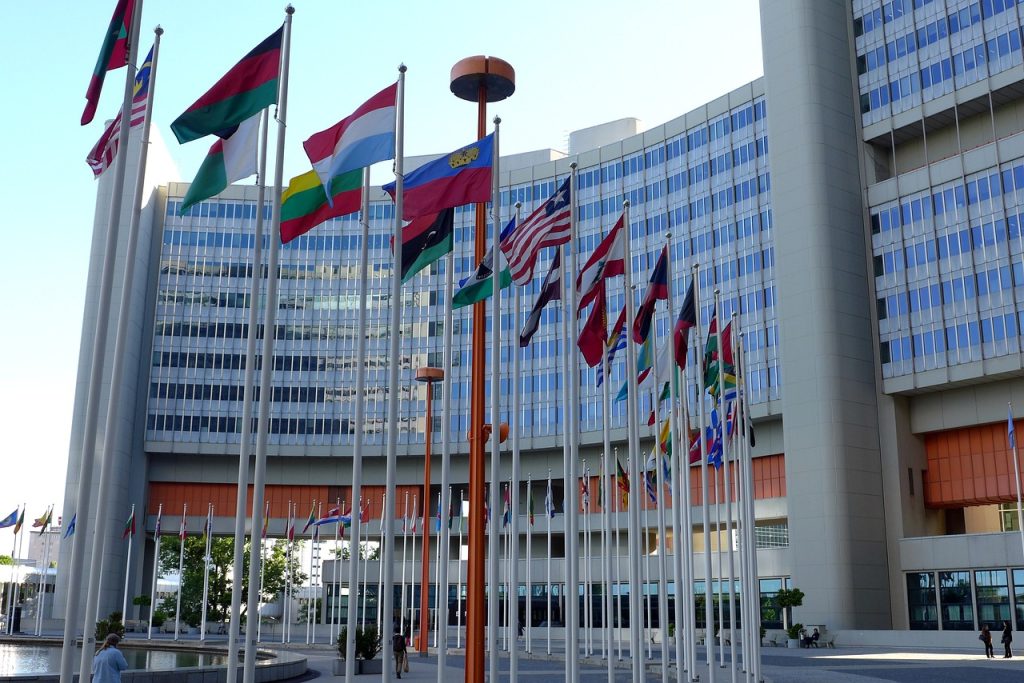
Introduction
Solidarity is a concept that has become increasingly important in the field of international diplomacy. It refers to the idea of countries coming together to work towards common goals, despite their differences. This can be seen in many areas of international relations, including trade, security, and humanitarian aid. In this article, we will explore the concept of solidarity in international diplomacy, looking at its meaning, significance, and challenges.
What is Solidarity?
Solidarity is a term that refers to the idea of unity and cooperation between individuals or groups. In the context of international diplomacy, it refers to countries coming together to work towards common goals. This can involve sharing resources, expertise, and knowledge to address global challenges such as climate change, poverty, and conflict.
Solidarity is often seen as a positive force in international relations, as it can help to build trust and understanding between countries. It can also lead to greater efficiency and effectiveness in addressing global challenges, as countries can pool their resources and expertise.
The Significance of Solidarity in International Diplomacy
Solidarity is significant in international diplomacy for several reasons. Firstly, it can help to promote peace and stability by encouraging countries to work together towards common goals. This can be seen in initiatives such as the United Nations, which brings together countries from around the world to promote peace, security, and development.
Secondly, solidarity can help to address global challenges that are beyond the capacity of individual countries to solve on their own. This can be seen in initiatives such as the Paris Agreement on climate change, which aims to limit global warming by reducing greenhouse gas emissions.
Finally, solidarity can help to build trust and understanding between countries, which can be essential for maintaining peaceful and productive international relations. This can be seen in initiatives such as cultural exchange programs, which aim to promote mutual understanding and respect between different cultures.
The Challenges of Solidarity in International Diplomacy
While solidarity can be a positive force in international diplomacy, it is not without its challenges. One of the main challenges is the need to balance the interests of different countries. This can be difficult when countries have different priorities or values, and can lead to disagreements and tensions.
Another challenge is the issue of sovereignty. Countries are often reluctant to give up control over their own affairs, and may be hesitant to work closely with other countries if they feel that their sovereignty is being compromised.
Finally, solidarity can be challenging when countries have different levels of development or resources. This can create a power imbalance, with some countries feeling that their voices are not being heard or that they are being unfairly disadvantaged.
Opportunities for Solidarity in International Diplomacy
Despite the challenges, there are many opportunities for solidarity in international diplomacy. One of the main opportunities is the growing recognition of the need for global cooperation to address major challenges such as climate change, poverty, and conflict.
Another opportunity is the increasing interconnectedness of the world. Advances in technology and communication mean that it is now easier than ever for countries to work together, share information, and coordinate their efforts.
Finally, solidarity can be an opportunity for countries to build stronger relationships and increase their influence on the global stage. By working together towards common goals, countries can increase their visibility and credibility, and build networks that can be leveraged for future cooperation.
Conclusion
In conclusion, solidarity is a key concept in international diplomacy. It refers to the idea of countries coming together to work towards common goals, despite their differences. Solidarity can be a positive force in international relations, helping to promote peace and stability, address global challenges, and build trust and understanding between countries. However, it is not without its challenges, including the need to balance the interests of different countries, the issue of sovereignty, and power imbalances.
Despite these challenges, there are many opportunities for solidarity in international diplomacy, including the growing recognition of the need for global cooperation, advances in technology and communication, and the potential to build stronger relationships and increase influence on the global stage.
As the world becomes increasingly interconnected, the concept of solidarity will continue to play an important role in international diplomacy. By working together towards common goals, countries can achieve greater success in addressing global challenges and promoting peace and stability around the world.
